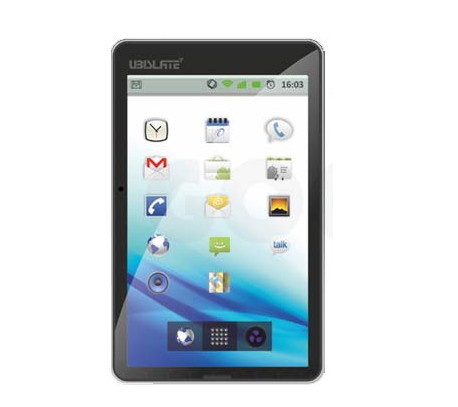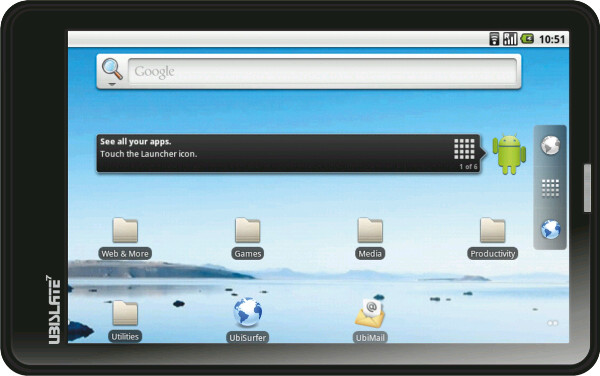With powerful hardware working together with an industry-leading camera system and intuitive AI experiences, everyday tasks have never been easier and faster
The world’s cheapest tablet goes live

The tablet market has exploded with new devices shipping from every vendor under the sun, but most of the media focus has been directed at who can provide a real competitor to the iPad. In India, the Aakash tablet is taking an different tack. It has already picked up over 300 000 prelaunch bookings for its commercial version that goes on sale next month — it must be doing something right. So what is so exciting about the Aakash that has Indian twitter community tweeting like crazy?
To begin with, the Aakash (also branded the Ubislate) is pitched as the world’s cheapest tablet computer. Subsidized by the Indian government and manufactured in the UK by Datawind, the Aakash is going to market with a price of Rs3 000, roughly US$55. The iPad goes for around 10 times that, so you’ve got to wonder what corners the Aakash has cut to keep its price down.
For this kind of device, is this even the right question to ask? The Aakash is aimed at providing a low-cost computing device similar to One Laptop Per Child (OLPC), but is mostly directed at urban college students rather than underprivileged rural students. The project is less about providing yet another iPad clone, but rather at offering a simple device that will improve IT access for India’s immense population.
The 7-inch Android-based device was initially launched last month, with 10 000 tablets shipped to the Indian government’s National Mission for Education. The devices are already being used by students from colleges and universities across the country. The commercial launch will see this usage increase to top the projected 250 000 user mark. To help with adoption, Datawind has sourced a likely mobile Internet provider that is willing to offer a data plan at INDRs99 ($2) a month to allow users to connect to the Internet with the tablet, which features Wi-Fi and 3G capabilities.
Venturebeat did a very positive review of the Aakash toward the end of last month. Some notable points about the Aakash, which means “sky” in Hindi, include the fact that while it has headphone and microphone jacks, it doesn’t feature any built-in speakers or microphone. The current version of the tablet also makes use of a resistive touch display, which is not particularly responsive. Its innards are also fairly slow, running a 366MHz ARM processor with 256MB RAM. Its internal operating system is stored on a 2GB flash disk. By default it ships with a 2GB MicroSD card for storage, but this can be expanded easily by swapping out for a bigger one.
While the device certainly won’t amaze anybody with a taste for raw processing power, it provides everything that a user needs to browse the Web and do the majority of basic online tasks, including the ability to watch online video clips. In fact, thanks to a reasonable GPU and HD Video Co-processor, video seems to do fairly well despite the relatively slow main CPU. This means that students can easily access online resources to improve their access to study materials and to network with other like-minded people.
Certainly, Datawind is already at work on the Aakash-2 to address many concerns about the current tablet. In its next release, scheduled for early next year, it will be upgraded to a 700MHz processor and the touch screen will become capacitive. Datawind also plans to supply an attachable INDRs400 (US$8) keyboard, turning the device into a usable computer for only $65. Indeed, the plan for the new version is to stick to the same price-point or bring it down further to increase adoption.
It seems that the launch of the Aakash has captured the attention of other developing countries, and Datawind suggests that governments of Mexico, Brazil, Egypt and Thailand have all expressed interest in taking part in a similar plan to India’s. Its also starting to have an effect on the mobile provider market in India, with price wars over data-plans imminent. Certainly, Reliance Industries, the third largest tablet supplier in India, has suggested that it may slash the cost of data download to as low as INDRs10 (US$0.02) per GB on its upcoming $115 tablet. Whatever happens in the future, the Aakash is making a splash as it hits the market.

